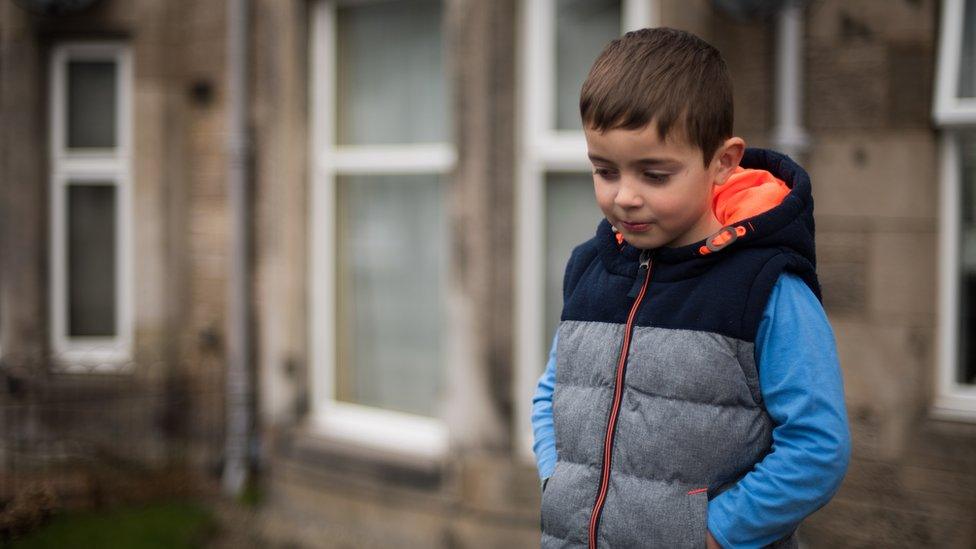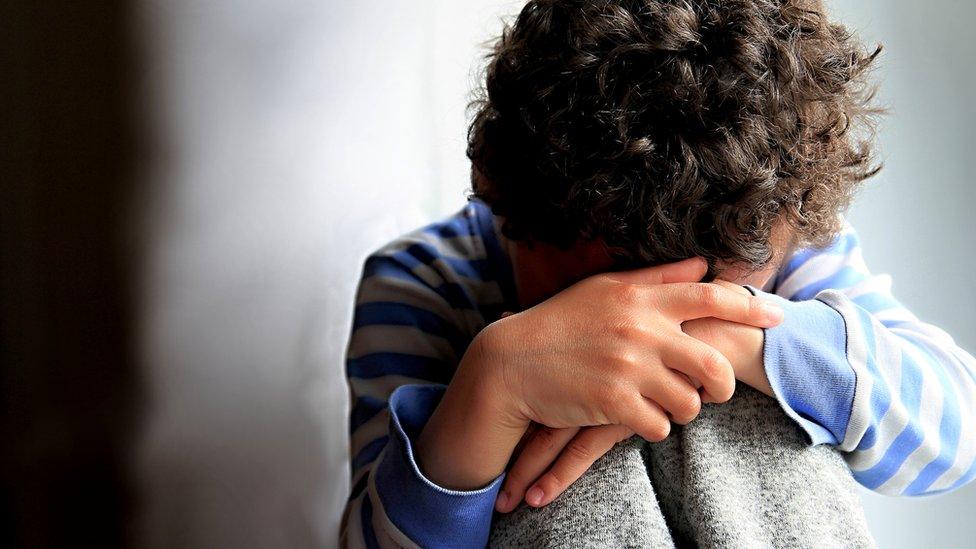Scottish government urged to act now on child poverty
- Published

More than one in four Scottish children were living in poverty before the pandemic
The Scottish government is being urged to act now to prevent child poverty, which has risen since targets were set in 2017.
Audit Scotland said more than one in four children were in poverty before Covid, but warned the cost of living crisis would make the situation worse.
Its new report says policies still prioritise helping youngsters out of poverty instead of ways to prevent it.
The Scottish government has welcomed the briefing paper.
In 2017, the Scottish Parliament set statutory targets for the government to significantly reduce four key indicators of child poverty by 2023/24, and then again by 2030/31.
The most commonly used indicator, relative child poverty, increased from an average of 21% across 2011-14 to 24% across 2017-20.
In 2019/20, pre-dating the pandemic, the latest single-year data available indicates that 260,000 children (26%) were living in poverty.
But problems with data collection during the pandemic meant figures for 2020/21 were not published.
The target for 2023/24 is for relative child poverty to fall to 18%.
The report recommends consistent use of the suite of child poverty indicators to reflect the impact of cost of living increases.
Audit Scotland noted that 10 years ago the Christie Commission recommended the Scottish government and councils shift more focus to preventing poverty.

The Scottish government is being urged to focus on preventing child poverty
Stephen Boyle, auditor general for Scotland, said: "Poverty affects every aspect of a child's wellbeing and life chances and has wider implications for society.
"The Scottish government needs to work with its partners to quickly set out the detail of how the second child poverty plan will be delivered, monitored and evaluated.
"Government policy takes time to have an impact on child poverty and so it is essential ministers also act now to set out options for reaching their long-term targets in 2030."
William Moyes, chair of the Accounts Commission, called for councils to improve the collection and sharing of information about their child poverty measures.
He said: "Councils have a key role to play in tackling child poverty through measures such as housing, education, childcare and employability. But there is limited information available across councils about what they are doing and its impact."
'National mission'
The Save the Children charity said families experiencing poverty need to be given a far greater role in shaping the solutions.
Claire Telfer, head of the charity in Scotland, said: "The parents we work with are finding it impossible to make ends meet right now and are worried about the immediate impact of poverty, as well as the long-term effects on their children.
"Every part of government should be working towards the goal of reducing child poverty. This will help every child in Scotland to achieve their full potential."
The Scottish government welcomed the Audit Scotland report and said it would be carefully considered.
A spokesperson added: "Tackling child poverty is a national mission.
"We invested an estimated £8.5bn in supporting low income households between 2018-22, of which £3.3bn directly benefitted children.
"Our second tackling child poverty delivery plan, Best Start, Bright Futures, sets out our actions to tackle child poverty still further, including our focus on long-term parental employment support, increased social security, and measures to reduce household costs."
The spokesperson said this included increasing the Scottish Child Payment to £25 per eligible child per week from 14 November.
Scottish Conservative spokesman for social justice, housing and local government, Miles Briggs, said the report was "a damning, but fully justified, criticism of the SNP government's dismal record on child poverty".
He added: "If the SNP's latest child poverty plan is to have any chance of success, they must reverse years of local government funding cuts and give Scotland's councils the resources required to tackle this issue."
- Published28 August 2022

- Published17 September 2022
